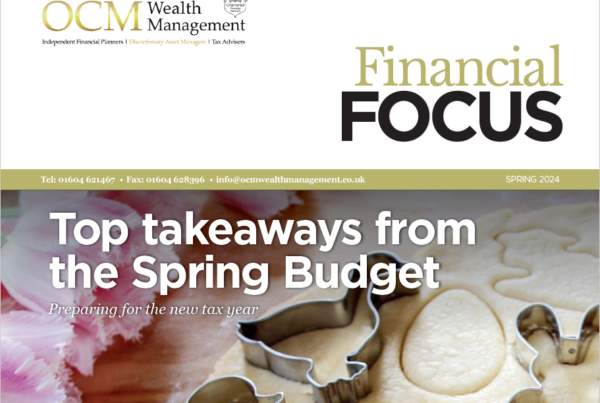Mixed data releases, renewed concerns over inflation and a stream of earnings announcements resulted in mixed risk asset performance this week, with Europe leading equity market gains. Over the week, the OBI portfolios benefitted from positive movements in equity and non-equity sectors, justifying our cautious positioning within the OBI portfolios as we approach the end of 2021.
So far this month, monetary policy has been a key driver behind market movements, with investors watching central bank communications closely while setting interest rate expectations for the remainder of 2021 into 2022. Although asset tapering announcements have been broadly in line with investor expectations, financial markets have been surprised by the dovish messaging surrounding the outlook for interest rates. Last week, the US Federal Reserve reiterated their patient jobs-first approach to interest rates as they remained reluctant to provide financial markets with clearer guidance on when interest rates may rise. In the UK, the Bank of England’s interest rate decision surprised financial markets that had been pricing in a small rate hike before the meeting, with Governor Andrew Bailey defying expectations by voting to keep interest rates on hold despite his hawkish stance in the lead up to the central bank’s decision. These events helped contribute to the drop in government bond yields observed earlier this week, before the latest inflation data flows spiked yields to offset some of the weekly gains.
US equities underperformed over the week, with technology-oriented firms pulling back from their record-setting run due to the recent jump in inflation data. On Wednesday morning, data showed that the CPI rate for October jumped by 6.20% compared to last year, accelerating from September’s 5.40% YoY rise and exceeding analyst expectations. The fastest annual rise in consumer inflation since 1990 led to the drop in growth-oriented asset prices as rising rates discount the value of future earnings. Despite this, US equities remain close to their all-time highs.
Chinese equities remained subdued throughout the week as recent data releases highlight the acceleration in both factory-gate prices and consumer inflation within the region. Given the higher-than-expected numbers, it looks unlikely that China’s central bank will lower lenders’ reserve requirement ratio in the near term, which weighed on stocks that could have benefitted from the supportive adjustment to the reserve requirement ratio. In Japan, equities declined over the week as the yen strengthened and some key earnings announcements missed expectations. While Japan isn’t seeing the speed of economic recovery of regions such as the US and Europe, Japanese assets are becoming increasingly attractive to foreign investors after the improvement in clarity surrounding Japan’s new leadership.
European equities experienced a positive bounce, as investors weighed solid earnings reports against the risks from growing inflationary pressures. As highlighted last week, European equity valuations are more fairly valued than US equity prices, encouraging investors to allocate capital to the improving region. This discount is even deeper within the UK, which were the strongest performing region this week as analysts provide upward revisions to the region’s equities.
Moving on to non-equity sector performance over the week, UK Gilts and Index Linked Gilts experienced the strongest intra-week bounce. Three out of the five non-equity sectors analysed have posted positive returns in the year-to-date time frame, noting that we do expect yields to become increasingly sensitive to central bank data flows over the coming months.
Portfolio Performance
The OBI portfolios have performed positively in the weekly time frame, with OBI 3 to 8 performing in line over the past seven days. While the weekly performance is encouraging in extending the strong performance gained so far this year, we are aware that the benchmarks performed more strongly over the same period. Given the more cautious approach we have adopted in recent weeks owing to increasing downside risks in the short term, we have taken some risk off the table by reducing our equity weighting and raising cash levels across the portfolios. As a result, the OBI portfolios currently hold around 60% to 70% of the equity content that the benchmarks hold, meaning that while our portfolios are less exposed to downward price pressures, they are not expected to perform as strongly as the benchmark when equity markets rise. As a reminder, our OBI portfolios are benchmark agnostic, meaning we do not aim to exceed the benchmark’s performance. Instead, we focus on meeting your targeted outcome while also managing excess market volatility throughout the cycle. Once short-term risks begin to clear and the outlook brightens, we are well positioned to take advantage of new opportunities and build on recent strong performance moving into the new year.
Past performance cannot be used as a guide to future performance and the value of your investment will fall as well as rise in value. You may not get back all of your investment and the final value of your investment will depend on the performance of your portfolio. The actual performance of an individual client’s portfolio may differ due to different funds being used and being restricted in relation to certain asset allocations. Performance figures quoted include fund manager charges but exclude adviser, discretionary, custodian and switch charges and trading spreads. Unless stated, income is reinvested into the portfolio. The information contained in in this document is for information purposes only. It does not constitute advice or a recommendation or an offer or solicitation for investment.
Key Events We Are Watching This Week:
- Friday 12th: US Michigan Inflation Expectations, Nov.
- Tuesday 16th: EU GDP Growth Rate Q3 Estimate.
This Day in History
At the 11th hour on the 11th day of the 11th month of 1918, the Great War ended. At 5 a.m. that morning, Germany, bereft of manpower and supplies and faced with imminent invasion, signed an armistice agreement with the Allies in a railroad car outside Compiégne, France.
Thank you for reading, have a great week!
Jason, Gina & Ben

